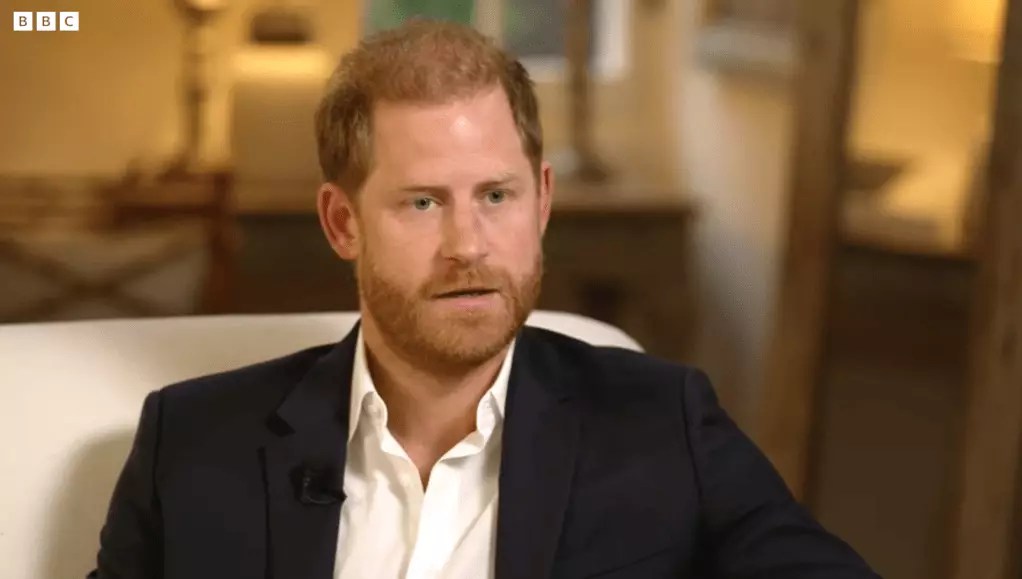The recent interview featuring Prince Harry on the BBC’s Radio 4’s Today show has opened up a floodgate of discussions regarding the UK’s media responsibilities, particularly in challenging powerful figures. In a world where information shapes public perception, the media holds a critical role in ensuring integrity and accountability. Unfortunately, the BBC has acknowledged a significant failure in maintaining its editorial standards by not sufficiently scrutinizing Prince Harry’s assertions regarding his security withdrawal, framing it as an “establishment stitch-up.” This situation raises an essential question: how does the press navigate the delicate balance of power between its duty to inform and the potential consequences of challenging those in privileged positions?
Royal Family Dynamics: A Personal Journey
Harry’s interview came at an essential juncture, wherein he expressed a profound longing for reconciliation with his estranged family. His comments point to the turmoil that has marred relationships within the royal family ever since his departure to the United States with Meghan Markle in 2020. As poignant as his message about the need for connection is, it reveals a profound vulnerability. By mentioning his father’s mortality and his desire to mend fences, Harry underscores that at the heart of royal discord lies human emotion. However, the BBC’s failure to interrogate his claims thoroughly amplifies his narrative, showcasing the potential danger in allowing sensational claims to go unchecked.
Accountability in Journalism
The BBC’s admittance of editorial shortcomings is an alarming sign of the times in journalism. In a landscape riddled with misinformation and populist narratives, stringent accountability in reporting has never been more crucial. Statements from the BBC emphasized the need to reflect the positions of both the Home Office and Buckingham Palace, showcasing an awareness of the complexities that come with reporting on royal affairs. However, one must question whether the public’s appetite for sensationalism has led media outlets to neglect their core responsibility to challenge narratives, especially those coming from individuals with substantial privilege and influence.
The Broader Implications of Media Loyalty
Harry’s criticisms of the establishment resonate with many who feel similarly marginalized, but they also raise concerns about how narratives can become weaponized. The emotional weight of his claims—grounded in personal sacrifice and familial love—draws sympathy, yet they run the risk of overshadowing the essential discourse surrounding security policy and public protection. It’s easy to align with a charismatic figure’s personal battles rather than engage in the nuanced realities of governance. The BBC’s soft approach might unintentionally bolster not just Harry’s narrative, but also perceptions of incompetence within governmental structures like the Home Office.
Ultimately, while Prince Harry’s narrative is compelling, it is the role of respected institutions, like the BBC, to foster a well-rounded conversation. In a society that grapples with authority and transparency, the stakes of holding influencers accountable are immense. The media must not only share stories but also rigorously question the claims of those in power, shaping a discourse that is not simply about picking sides but about understanding the multifaceted reality of modern governance and accountability.


The discussions following Prince Harry’s interview reflect a significant moment in media accountability, as the BBC’s lack of critical engagement with his claims raises crucial questions about the responsibility of journalism to challenge narratives from influential figures; it’s imperative for media outlets to strike a balance between empathy and rigorous scrutiny to foster informed public discourse and uphold integrity in reporting.
The discussions triggered by Prince Harry’s interview reveal a crucial turning point for media accountability; the BBC’s failure to rigorously challenge his claims not only risks perpetuating a narrative disconnected from the complexities of security and governance but also highlights the pressing need for journalism to foster a dialogue that balances empathy with critical scrutiny, ensuring that influential voices are held to the same standards of truth and integrity expected from all.
The BBC’s handling of Prince Harry’s interview serves as a stark reminder of the media’s responsibility to critically examine the narratives it portrays, particularly those from privileged individuals; as public trust wavers, it becomes increasingly vital for institutions to not only present compelling stories but to challenge potentially misleading assertions to foster a more informed dialogue surrounding governance and accountability.
Prince Harry’s interview has indeed sparked necessary dialogues about the media’s role in critically evaluating powerful narratives, especially when institutions like the BBC miss the mark on accountability; as we navigate complex societal issues, it’s crucial for journalism to balance empathy with rigor to avoid reinforcing potentially misleading claims.
The recent interview with Prince Harry underscores the pressing need for media organizations, particularly the BBC, to uphold rigorous journalistic standards and critically engage with powerful figures’ narratives; without this scrutiny, we risk compromising public discourse and accountability, especially when personal stories intersect with broader issues like security and governance.
Prince Harry’s recent interview has indeed highlighted the critical need for the media, especially respected institutions like the BBC, to diligently scrutinize powerful narratives and claims, as failing to do so not only risks perpetuating misinformation but also obscures essential conversations about accountability and governance in today’s complex landscape.
The recent interview with Prince Harry on BBC Radio 4 has certainly sparked a heated debate about media ethics, particularly the responsibility of outlets like the BBC to critically assess the narratives presented by influential figures, which in this case, raises broader questions about accountability and integrity in journalism amidst sensational claims.